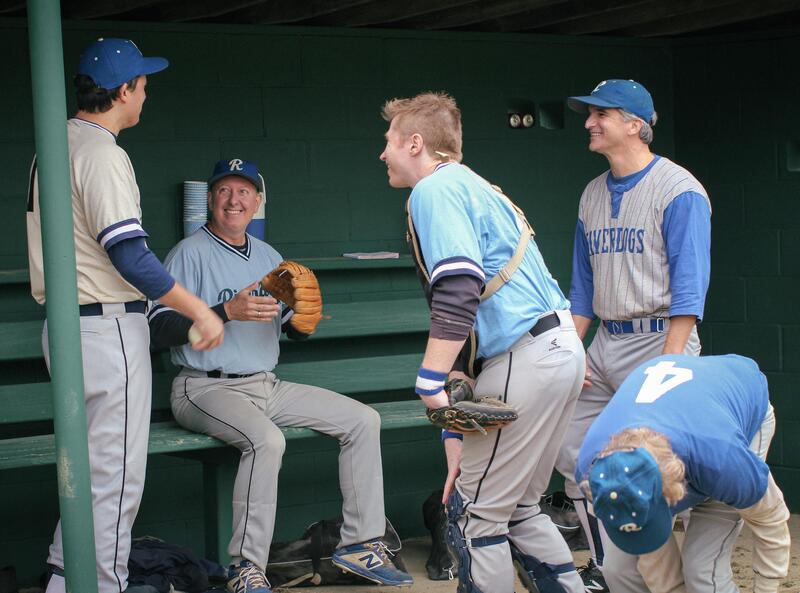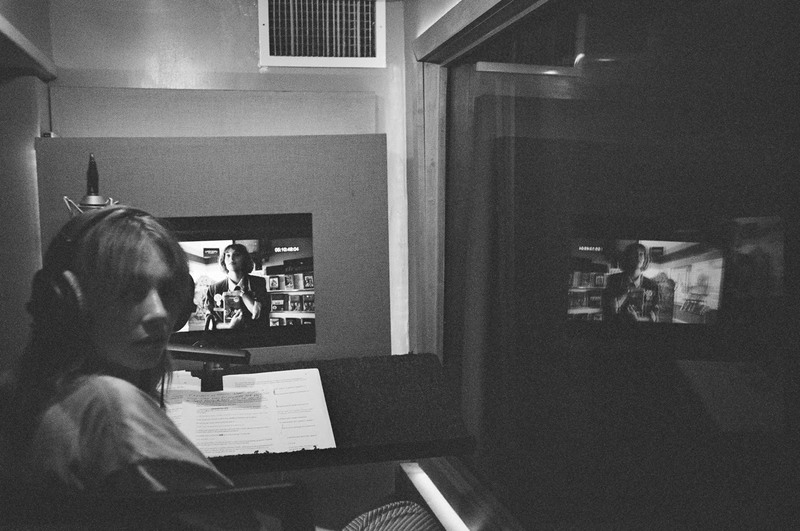
Holding on While the Game Slips Away
MOVIE REVIEW
Eephus
–
Genre: Comedy, Drama
Year Released: 2024, Music Box Films Blu-ray 2025
Runtime: 1h 37m
Director(s): Carson Lund
Writer(s): Michael Basta, Nate Fisher, Carson Lund
Cast: Cliff Blake, Keith William Richards, Bill Lee, Keith Poulson, Conner Marx, Theodore Bouloukos, Wayne Diamond, Stephen Radochia, David Pridemore, John R. Smith Jr.
Where to Watch: available early July, pre-order your copy here: www.musicboxshop.com or www.amazon.com
RAVING REVIEW: In EEPHUS, director Carson Lund doesn’t just recreate a time and place—he lets us linger in it. Set in a 90s Massachusetts that’s seen better days but still has stories to tell, this feature thrives in its patience, awkward silences, and the timeless ritual of community gathering under the guise of sport. It’s a film that doesn’t push you toward emotion; instead, it lobs it like a slow, curving pitch—seemingly easy to read, but surprisingly hard to forget once it lands.
The setup is simple: two recreational baseball teams, the River Dogs and Adler’s Paint, are playing what will likely be their final game together at the local Soldier’s Field. In its infinite detachment, the county board has decided the field will be razed to build a school—an objectively good cause, but one that still feels like a loss. Nobody knows how long the teams have been meeting here. The memories are fractured, like a collective scrapbook missing a few pages, but that doesn’t make them any less sacred to the men involved.
The players are well past their prime physically, but they’re still full of fire in their own ways. They compensate for their lack of athleticism with trash talk, nostalgia, and aimless philosophizing. Each character feels distinct, not as exaggerated caricatures of middle-aged people, but as recognizable figures from small-town life. There’s the guy who brings a guitar to the game for no reason—the one who takes things way too seriously. The self-appointed historian of the group, reciting half-true stories with the authority of a man who’s told them too many times to doubt himself. These people aren’t written to deliver punchlines or pathos on cue—they’re meant to live on the edges, where real life lingers.
And that’s where EEPHUS thrives. It isn’t concerned with building toward a cathartic climax. Instead, it unfolds slowly but surely, like the game itself—uneventful in bursts, but emotionally rich in the details if you’re willing to sit with it. Conversations fade in and out. Some of them matter. Some don’t. But that’s the point. The film isn’t about what’s said but what’s slipping away.
Carson Lund’s direction favors a measured, observational style that won’t be for everyone. There’s a deliberate looseness to how scenes are structured—innings blur together, and there’s a dreamy sense of time folding in on itself. You’re not always sure if it’s the fifth or seventh inning, but that’s how memory works. It’s not about keeping score—it’s about the feeling of being there, hearing the voices, seeing the dust kick up from the basepaths, watching the sun dip lower behind a backstop that’s seen better days.
Setting the film in the mid-90s without overemphasizing the aesthetic is smart. There’s no loud signaling of the era—no clunky references or era-specific soundtracks to remind us where we are. Instead, Lund leans into the textures of the time. The 90s here feel less like a statement and more like a place you recognize because you’ve been there, even if you haven’t.
Thematically, EEPHUS explores the slow erosion of community, but it never yells about it. It shows how easily things dissolve: a team without a place to play, friends whose routines once revolved around a shared patch of grass now left wondering what happens next. It’s a small-scale story that evokes something much larger: the fading of traditions not because they were broken but because no one thought to save them.
As a debut, it’s an impressively confident work. Lund trusts his material and his audience. He doesn’t feel the need to push emotion or underline the obvious. That restraint gives EEPHUS its charm—and, at times, its limitation. A touch more tension or narrative shape could have given certain moments more impact. But those are small gripes in the grand scheme of what the film achieves.
It’s not just a love letter to baseball. That would be too easy. It’s a love letter to the space that baseball creates—what it means to have a reason to gather, play, argue about nothing, and go home sunburned and sore but filled with something intangible. EEPHUS finds its depth in those small moments, treating them with the gravity they deserve. The film captures a moment just as it’s about to disappear, and by the time the lights go out on the field, you may not be ready to let go either.
Please visit https://linktr.ee/overlyhonestr for more reviews.
You can follow me on Letterboxd, Instagram, Twitter, and YouTube. My social media accounts can also be found on most platforms by searching for 'Overly Honest Reviews'.
I’m always happy to hear from my readers; please don't hesitate to say hello or send me any questions about movies.
[photo courtesy of MUSIC BOX FILMS]
DISCLAIMER:
At Overly Honest Movie Reviews, we value honesty and transparency. Occasionally, we receive complimentary items for review, including DVDs, Blu-rays, CDs, Vinyl Records, Books, and more. We assure you that these arrangements do not influence our reviews, as we are committed to providing unbiased and sincere evaluations. We aim to help you make informed entertainment choices regardless of our relationship with distributors or producers.
Amazon Affiliate Links:
Additionally, this site contains Amazon affiliate links. If you purchase through these links, we may receive a commission. This affiliate arrangement does not affect our commitment to honest reviews and helps support our site. We appreciate your trust and support in navigating these links.



Average Rating